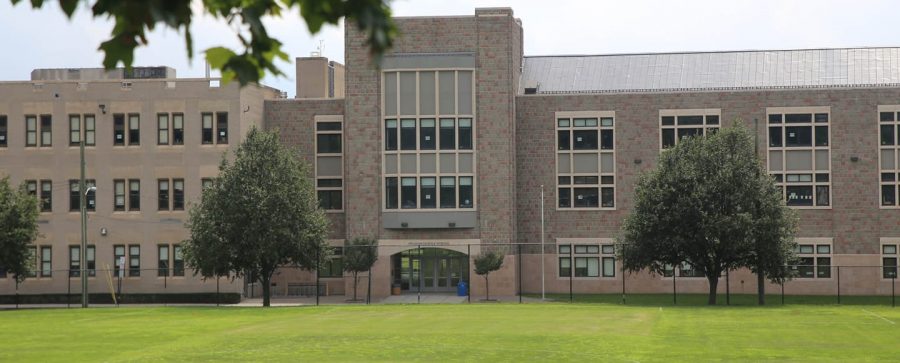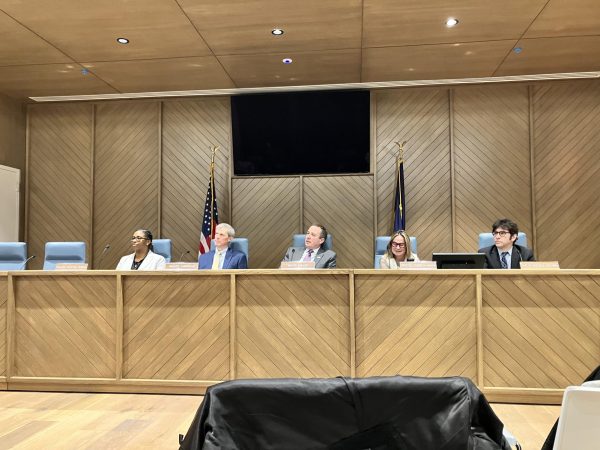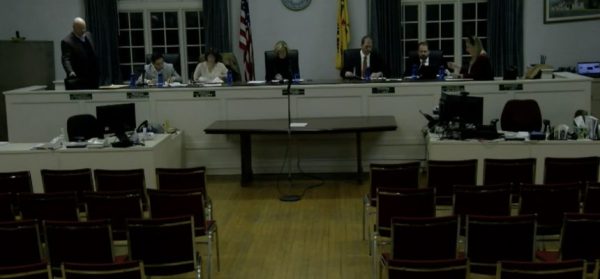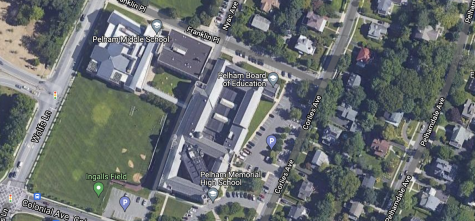Pelham Board of Education violates Open Meetings Law: state panel
The Pelham Board of Education regularly violates the state Open Meetings Law in two different ways, according to an advisory opinion issued by the New York State Committee on Open Government.
In the first instance, it is the board’s consistent practice to enter closed-door executive sessions without first voting on a motion to do so with the public present. When voting to exclude the public, the school trustees must do so in public, the Committee on Open Government said.
In the second instance, the board currently does not identify the specific legal case it intends to talk about when the stated purpose of the executive session is discussion of litigation. The advisory opinion said that specific information is a requirement. The Committee on Open Government is the state agency that oversees the Open Meetings, Freedom of Information and Personal Privacy Protection laws. The Pelham Examiner requested the advisory opinion.
The Pelham school board’s notice for Wednesday’s meeting, as it often does, stated, “The board will hold its regular meeting at 7:30 p.m. on Wednesday, Nov. 17 in the Pelham Middle School… Prior to the public meeting, the board is expected to meet at 6:30 p.m. in the middle school chorus room and immediately enter into executive session to discuss the employment history of a particular person(s).”
According to the Committee on Open Government, “Although the Pelham Union Free School District’s public meeting notice informs the public that it anticipates entering an executive session before the public meeting, it is our view that the law requires that it must actually open the public meeting and allow the public to observe the motion and vote to adopt the motion before entering into an executive session in order to comply with section 105 of the law.”
Such motions must specify the legally permitted purpose or purposes for an executive session, the committee said. Section 105 is the provision in the Open Meetings Law that deals with executive sessions.
In distinguishing in its public notices between executive sessions and “regular” or public meetings that begin an hour later, the board is also not following the law. “This committee has long opined that executive sessions are not separate and distinct meetings but are instead part of a public meeting,” said the advisory opinion, which was authored by Committee on Open Government senior attorney Christen Smith.
In the case of litigation, the school board typically gives as the reason for the executive session that it will discuss “proposed, pending or current litigation.”
“Regarding the sufficiency of a motion to discuss litigation, courts held that: ‘It is insufficient to merely regurgitate the statutory language; to wit, ‘discussions regarding proposed, pending or current litigation,’” the Committee on Open Government said. “This boilerplate recitation does not comply with the intent of the statute. To validly convene an executive session for discussion of proposed, pending or current litigation, the public body must identify with particularity the pending, proposed or current litigation to be discussed during the executive session.’ The emphasis in this passage on the word ‘the’ indicates that when the discussion relates to litigation that has been initiated, the motion must name the litigation. For example, a proper motion might be: ‘I move to enter into executive session to discuss our litigation strategy in the case of the XYZ v. the Pelham Union Free School District.’”
“In sum, based upon the language of the Open Meetings Law and judicial interpretation discussed herein, it is our view that motions to conduct executive sessions to discuss ‘litigation’ without additional detail are inadequate,” said the committee.
In an emailed statement, Board of Education President Jessica DeDomenico said, “The Pelham Board of Education has a longstanding practice of holding its executive session meetings prior to the regular business portion of the meeting. When this occurs, the time and location of the executive session is announced in the meeting notice. The board does open its meeting in public and considers a motion to enter into executive session prior to closing the meeting to the general public. The board understands its obligation to notify the public as to the reasons why an executive session is contemplated and will ensure that its motions to enter into executive session are sufficiently detailed. We as a board are committed to transparency and will continue to work with our attorneys to ensure we are in compliance with the Open Meetings Law.”
The Pelham Examiner first brought the litigation issue to the attention of the school board in September before requesting the review by the Committee on Open Government.
Suzanne Volpe, an attorney with the school district’s outside counsel Keane & Beane, wrote on Sept. 14, “I acknowledge the authorities you cite regarding the specificity of the board’s motions to enter into executive session to discuss proposed, pending or current litigation.”
However, since that acknowledgment, the school board has not begun specifying the litigation to be discussed in its closed-door sessions on such legal matters.
In the advisory opinion, the Committee on Open Government cited the first section of the Open Meetings Law as providing the foundation for all public meetings: “The people must be able to remain informed if they are to retain control over those who are their public servants. It is the only climate under which the commonweal will prosper and enable the governmental process to operate for the benefit of those who created it.”











Armen Benson • Nov 18, 2021 at 7:17 am
The procedure to inform the public that it will hold a closed door meeting, without first allowing the public to be present in order to observe such a motion, nor for the public to vote on that motion is, in fact, tantamount to what transpires, behind closed doors, in dictatorships, not in democratically constituted societies. Secondly, to hold such meetings in a general manner, on general topics, with the public uninformed regarding the specifics of the case(s) to be discussed and resolved, is of the same manor born, and of the same totalitarian resolve to keep all things secret, and away from public scrutiny. This should be, but often is not, unheard of, in a community of, for, and by, the people.
Tiffany Hebert • Nov 17, 2021 at 7:13 pm
It seems like it would have been more transparent to clearly indicate in the article that this advisory panel was convened due to an inquiry from this paper’s editor. Otherwise it literally seems to be coming out of the blue.
Peter Rustin • Nov 18, 2021 at 6:50 pm
Right or wrong, the Committee on Open Government could be satisfied if the meeting notice tells the public that the “Public Meeting” will start at 6:30 PM and immediately go into closed session. The notice should continue to say that the Public meeting will reopen at 7:30 PM or as close thereafter as possible. At 7:30, if the closed session agenda is not completed, the board has the option of continuing the closed session after the public meeting or it could continue the closed session and keep the public waiting, . At 6:30 PM the “public meeting should open and a vote should be taken to go into closed session.